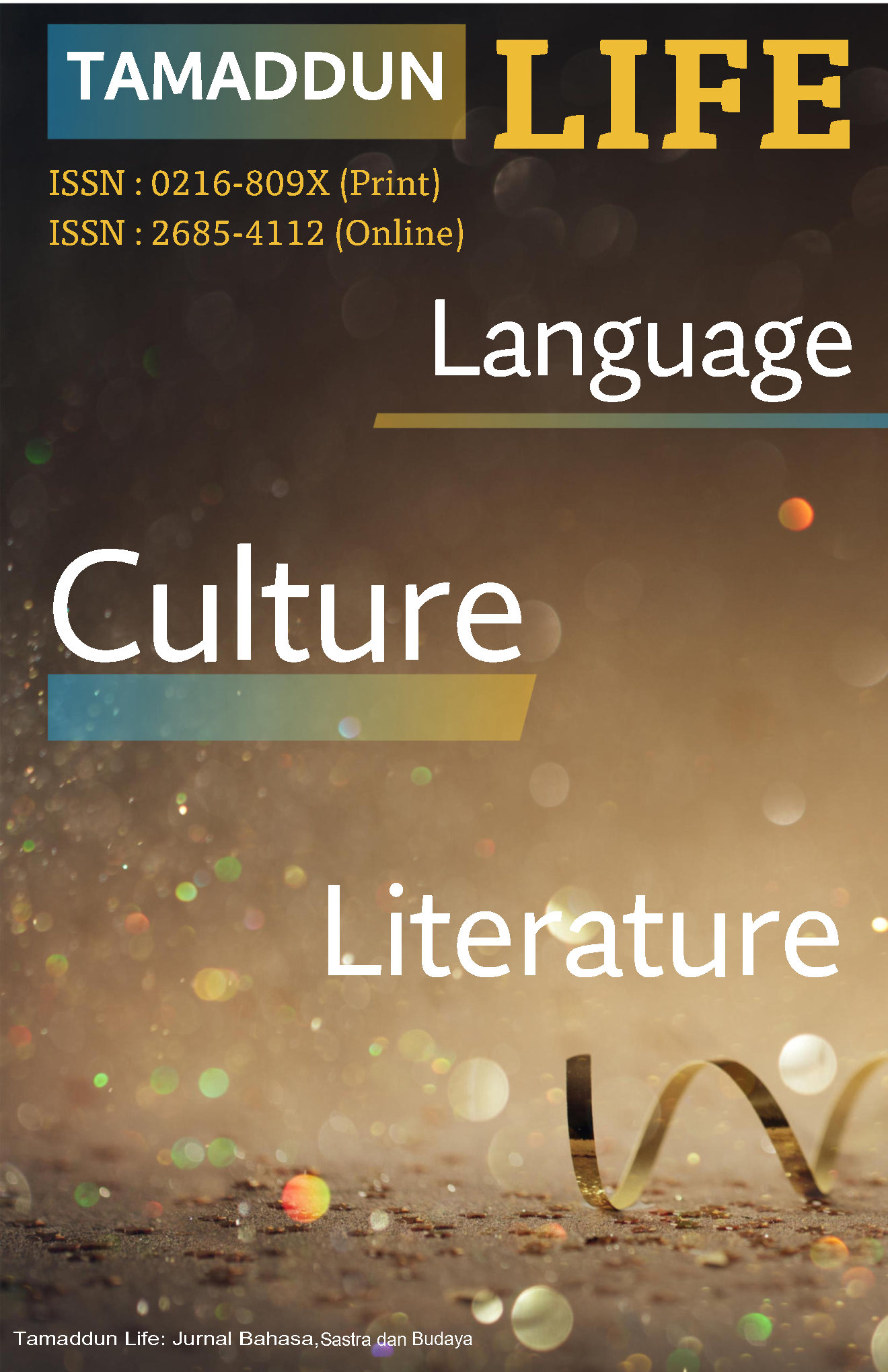Fostering Qur’anic Character through Virtual Recitation: A Qualitative Study of the Khatam Al-Qur’an Programme at an Indonesian Medical Faculty
DOI:
https://doi.org/10.33096/tamaddun.v24i1.953Keywords:
Character Development, Qur’anic Recitation, Ramadan, Islamic Values, Medical StudentsAbstract
This study investigates the implementation and impact of Qur’anic recitation completion (khatam Al-Qur’an) activities as a medium for character development among students at the Faculty of Medicine, Universitas Muslim Indonesia (UMI), Makassar. The research is guided by three primary questions: (1) What is the structure of the khatam Al-Qur’an program in the context of student character formation? (2) What character values are cultivated through this activity? and (3) How effective is the implementation of the khatam Al-Qur’an program within the faculty environment? The objective is to analyze the implementation process, identify the character values fostered, and assess the program’s effectiveness in integrating spiritual and professional development among medical students. The activity is held regularly during the holy month of Ramadan and is positioned as a strategic initiative for character education grounded in Islamic spiritual values. A qualitative descriptive approach was employed, using data collected through observations, in-depth interviews, and questionnaires administered to participating students and program facilitators. The results reveal that the program is systematically implemented in both online and offline formats through two main modalities: (1) One Day One Juz (ODOJ), conducted individually, and (2) collective qira’ah sessions, carried out in turns via virtual platforms or face-to-face gatherings. These formats effectively instill core character values such as religiosity, honesty, discipline, responsibility, and inner peace. Students reported that participation in the program significantly enhanced their spiritual well-being, boosted academic motivation, and shaped a strong foundation for ethical professionalism in the medical field. The present study sheds light on the khatam Al-Qur’an program conducted during Ramadan which serves as an effective and integrative tool for character development, bridging spiritual enrichment with academic and professional ethics. The model demonstrates strong potential to be adapted as a sustainable character-building initiative within higher education institutions rooted in Islamic values.
References
Adawiyah, R., Subaidah, & Setiawati, N. (2024). Pengaruh Keteladanan Pendidik Terhadap Pembentukan Karakter Peserta Didik di SMPIT Insan Cendikia Makassar. JKP: Jurnal Khasanah Pendidikan, 2(2), 199–208. https://doi.org/10.58738/jkp.v2i2.492
Al-Bukhari, M. ibn I. (1987). Shahih al-Bukhari (Vol. 6, Hadith No. 5027, p. 145). Beirut: Dar Ibn Katsir. (Original work published 1407 H)
Cruess, R. L., & Cruess, S. R. (2006). Teaching professionalism: General principles. Medical Teacher, 28(3), 205–208. https://doi.org/10.1080/01421590600643653
Gosselin, T. K. (2022). Cultural competence in professional education: Bridging the gap through context-based approaches. Journal of Professional Development in Education, 48(1), 15–27. https://doi.org/10.1080/19415257.2021.1931245
Ibnu Katsir. (n.d.). Tafsir Ibnu Katsir (Jilid 5). Jakarta: Pustaka Ibnu Katsir. Retrieved April 20, 2025, from https://ibnukatsir.com/shop/shahih-tafsir-ibnu-katsir-jilid-5/
Ibn Kathir. (n.d.). Tafsir al-Qur’an al-‘Azhim (Vol. 5). Beirut: Dar al-Fikr.
Imam Nawawi. (n.d.). At-Tibyan fi Adab Hamalat al-Qur'an. Retrieved January 5, 2025, from https://www.academia.edu/8292642/Kitab_At_Tibyan_fi_Adab_Hamalat_al_Qur_an_karya_Imam_Nawawi
Kementerian Agama RI. (2016). Al-Qur’an dan terjemah Ar-Rafi’. Jakarta: Pustaka Jaya Ilmu.
Kementerian Pendidikan dan Kebudayaan RI. (2017). Penguatan pendidikan karakter (PPK). Jakarta: Kemendikbud.
Lickona, T. (2019). Educating for character: How our schools can teach respect and responsibility. New York: Bantam Books.
Lickona, T. (2019). Mendidik untuk membentuk karakter: Bagaimana sekolah dapat memberikan pendidikan tentang sikap hormat dan bertanggung jawab (J. A. Wamaungo, Trans.). Jakarta: Bumi Aksara. (Original work published 1991)
Miles, M. B., & Huberman, A. M. (1992). Analisis data kualitatif: Buku sumber tentang metode-metode baru. Jakarta: UI Press.
Moleong, L. J. (2019). Metodologi penelitian kualitatif. Bandung: PT Remaja Rosdakarya.
Quraish Shihab, M. (1996). Membumikan Al-Qur’an. Bandung: Mizan.
Quraish Shihab, M. (2002). Membumikan Al-Qur’an: Fungsi dan peran wahyu dalam kehidupan masyarakat. Bandung: Mizan.
Rahman, M. (n.d.). The therapeutic impact of Qur’anic recitation on stress reduction among university students. Journal of Islamic Psychology, 8(2), 45–56.
Rahayu, F. (2019). Pendidikan karakter dalam perspektif Islam: Telaah pemikiran Ibnu Miskawaih dan relevansinya. Tadris: Jurnal Keguruan dan Ilmu Tarbiyah, 4(1), 1–12. https://doi.org/10.24042/tadris.v4i1.3851
Rahayu, F. (2019). Pendidikan karakter: Analisis pemikiran Ibnu Miskawaih. Al-Mudarris (Jurnal Ilmiah Pendidikan Islam), 2(1), 19–38. Retrieved January 20, 2025, from https://ejournal.iainkerinci.ac.id/index.php/tarbawi/article/view/341/266
Shulhan, M. (2018). Konsep tanggung jawab dalam pendidikan karakter: Pendekatan konstruktivis. Jurnal Pendidikan Karakter, 8(1), 22–33. https://doi.org/10.21831/jpk.v8i1.18125
Shulhan, M. (2023). Strategi pendidikan karakter untuk membentuk sikap tanggung jawab pada siswa sekolah dasar. Jurnal Nakula, 1(2), 1530–1924. Retrieved March 2, 2025, from https://journal.aripi.or.id/index.php/Nakula/article/view/1530
Sugiyono. (2018). Metode penelitian kuantitatif, kualitatif, dan R&D. Bandung: Alfabeta.
Suhaili, A., Hasan, M., & Azhari, R. (2022). Kajian ayat syifa’ dalam Al-Qur’an menurut tafsir al-Thabari. El-Waroqoh: Jurnal Ushuluddin dan Filsafat, 6(1), 1–23.
Wibowo, A. (2013). Pendidikan karakter: Strategi membangun karakter bangsa berperadaban. Yogyakarta: Pustaka Pelajar.
Zulkifli Mansyur, Baba, M. A., & Bandil, P. D. (2025). Pengaruh membaca Al-Qur’an terhadap tingkat kecemasan akademik pada siswa. Nama Jurnal. Retrieved February 22, 2025, from https://journal.iain-manado.ac.id/index.php/index/search/search
Downloads
Published
Issue
Section
License
Copyright (c) 2025 Nanu Nugraha, Akhmad Syahid, Nuraeni Abdullah, Yusril Muhammad Arsyad

This work is licensed under a Creative Commons Attribution 4.0 International License.
Authors who publish with Tamaddun journal agree to the following terms:
1. Authors retain the copyright and grant Tamaddun the right of first publication. The work will be licensed under a Creative Commons Attribution License (CC BY 4.0), which permits others to share the work with proper acknowledgment of the authorship and initial publication in this journal.
2. Authors may enter into additional non-exclusive agreements for the distribution of the published version of their work (e.g., posting it to an institutional repository or including it in a book), provided that the initial publication in this journal is acknowledged.
3. Authors are encouraged to post their work online (e.g., in institutional repositories or on their personal websites) before and during the submission process. This can lead to productive exchanges and increase the visibility and citation of the published work.






